Human Cell Atlas of Latin America Diversity
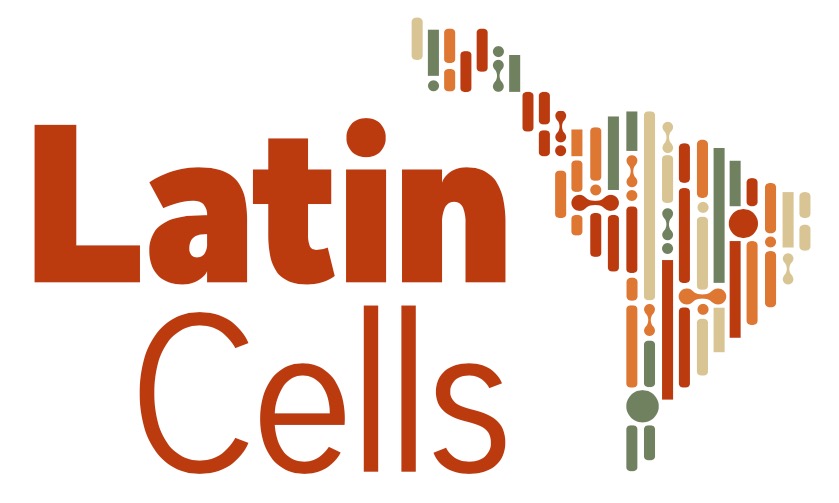 The LatinCells project aims to create a comprehensive cellular map of immune blood cells and gallbladder tissue from diverse Indigenous and mixed populations across seven countries in Latin America: Mexico, Colombia, Peru, Chile, Brazil, Uruguay, and the U.S. Latino population. This initiative, part of the Chan Zuckerberg Initiative’s global effort, focuses on underrepresented populations in the Human Cell Atlas (HCA). By generating high-resolution molecular profiles and analyzing RNA expression patterns linked to ancestry, the project seeks to identify novel disease markers and adaptation mechanisms. Additionally, LatinCells emphasizes building scientific and technical capacity in Latin America by training local researchers in advanced single-cell technologies and bioinformatics, empowering these countries to contribute to global cellular research.
For more information, visit www.latincells.org.
The LatinCells project aims to create a comprehensive cellular map of immune blood cells and gallbladder tissue from diverse Indigenous and mixed populations across seven countries in Latin America: Mexico, Colombia, Peru, Chile, Brazil, Uruguay, and the U.S. Latino population. This initiative, part of the Chan Zuckerberg Initiative’s global effort, focuses on underrepresented populations in the Human Cell Atlas (HCA). By generating high-resolution molecular profiles and analyzing RNA expression patterns linked to ancestry, the project seeks to identify novel disease markers and adaptation mechanisms. Additionally, LatinCells emphasizes building scientific and technical capacity in Latin America by training local researchers in advanced single-cell technologies and bioinformatics, empowering these countries to contribute to global cellular research.
For more information, visit www.latincells.org.
Large Scale Biobanks from Undeserved Populations To Accelerate COVID-19 Host Genetics Studies in Latin America and Oceania
 This project will investigate important issues related to ethnic minorities who are particularly affected by the SARS-CoV-2 virus and who will benefit from the range of information included in the DNA biobanks of the indigenous populations in Latin America, Oceania, and South East Asia, in order to implement suitable public health measures to tackle the COVID-19 pandemic in those regions of the world.
This project will investigate important issues related to ethnic minorities who are particularly affected by the SARS-CoV-2 virus and who will benefit from the range of information included in the DNA biobanks of the indigenous populations in Latin America, Oceania, and South East Asia, in order to implement suitable public health measures to tackle the COVID-19 pandemic in those regions of the world.
MX BioBank Project
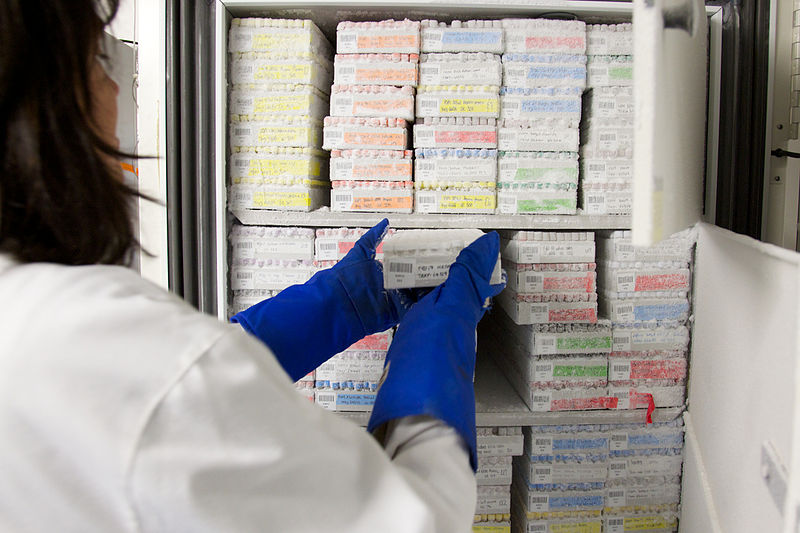 The Mexican Biobank project will build one of the largest biobank genetic resources in Latin America to support big data science in medical genomics with admixed populations. Jointly funded by CONACYT Mexico, the UK Research Councils (RCUK), and the Newton Fund, the project will generate genomic data on nearly 10,000 Mexican individuals with linked demographics and medical data, and will measure antibody titers on a panel of relevant pathogens naturally circulating in the Mexican population. This project brings together collaborators from Mexico (LANGEBIO, INSP, INCMNSZ), the UK (University of Oxford, the Jenner Institute, Wellcome Trust’s WTCHG) and the USA (Stanford University, University of Colorado).
The Mexican Biobank project will build one of the largest biobank genetic resources in Latin America to support big data science in medical genomics with admixed populations. Jointly funded by CONACYT Mexico, the UK Research Councils (RCUK), and the Newton Fund, the project will generate genomic data on nearly 10,000 Mexican individuals with linked demographics and medical data, and will measure antibody titers on a panel of relevant pathogens naturally circulating in the Mexican population. This project brings together collaborators from Mexico (LANGEBIO, INSP, INCMNSZ), the UK (University of Oxford, the Jenner Institute, Wellcome Trust’s WTCHG) and the USA (Stanford University, University of Colorado).
Mexican Population Genomics
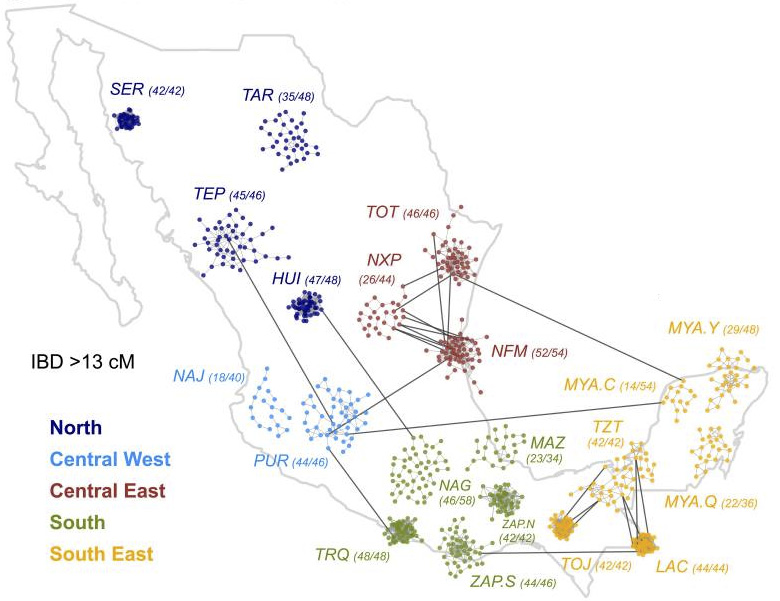 Little is known about the distribution of population-specific genetic variants that may underlie evolutionary and biomedical traits in the Mexican population. In our research group, we are working to fill this gap by applying genomic methods to characterize the population genetics of native and admixed Mexicans. Our current projects include exome sequencing and high-density genotyping of diverse ethnic groups, and using admixture deconvolution methods to reconstruct Mexican pre- and post-colonial demographic history and population structure. Funding for these projects is provided by Mexico’s CONACYT Ciencia Básica Program and the International Centre for Genetic Engineering and Biotechnology (ICGEB).
Little is known about the distribution of population-specific genetic variants that may underlie evolutionary and biomedical traits in the Mexican population. In our research group, we are working to fill this gap by applying genomic methods to characterize the population genetics of native and admixed Mexicans. Our current projects include exome sequencing and high-density genotyping of diverse ethnic groups, and using admixture deconvolution methods to reconstruct Mexican pre- and post-colonial demographic history and population structure. Funding for these projects is provided by Mexico’s CONACYT Ciencia Básica Program and the International Centre for Genetic Engineering and Biotechnology (ICGEB).
Human Genomics of South America and the Caribbean
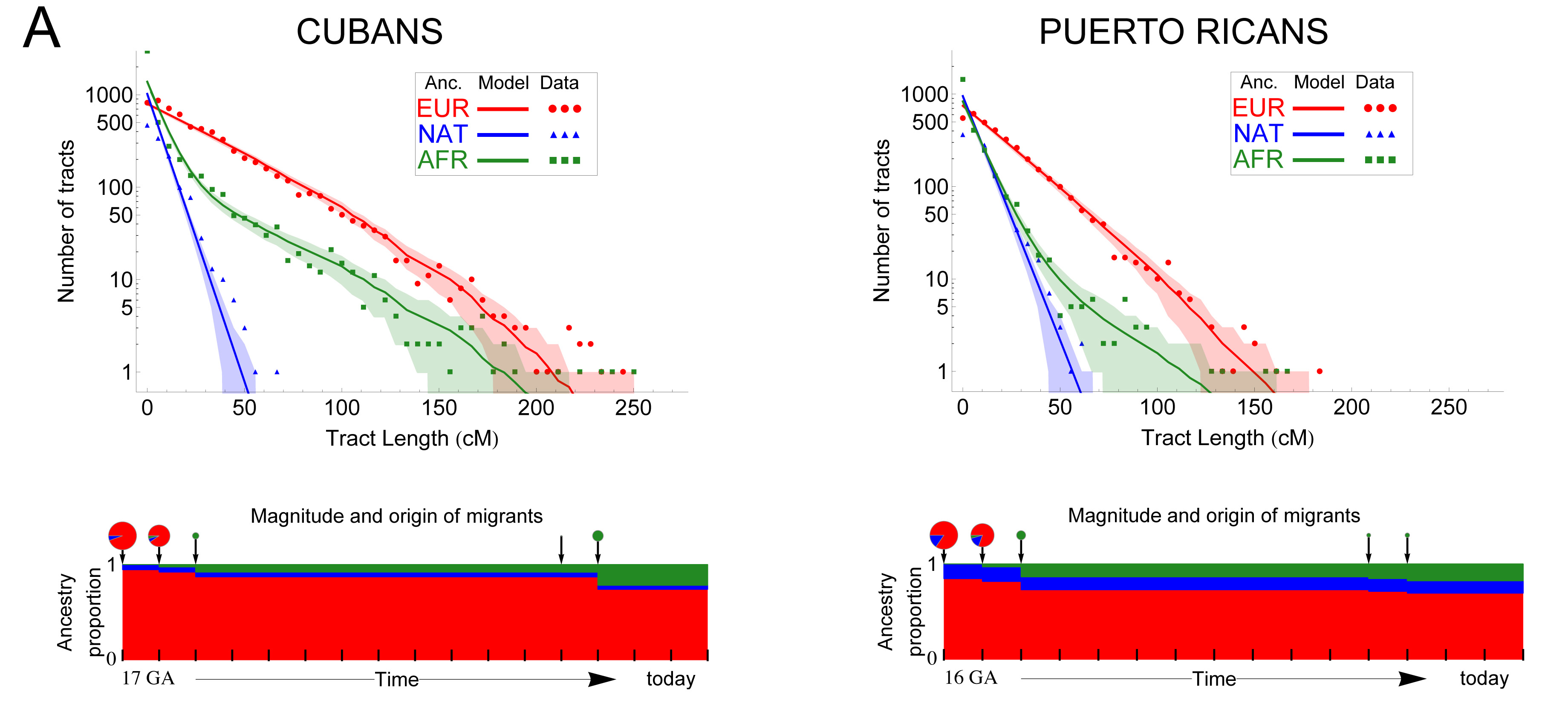 The peoples of the Americas are among the most ethnically, linguistically and culturally diverse on the planet. However, despite the globalization of biotechnologies to analyze the human genome, many populations in this region remain underrepresented in large-scale genomic studies. We are investigating the genetic diversity of present-day populations from Chile, Peru and the Antilles to understand demographic history, identify patterns of adaptation, and characterize phenotypic and medically relevant variation across South America and the Caribbean. Support for these projects is provided by the National Science Foundation, the ICGEB grant, and The Stanford Center for Computational, Evolutionary and Human Genomics (CEHG).
The peoples of the Americas are among the most ethnically, linguistically and culturally diverse on the planet. However, despite the globalization of biotechnologies to analyze the human genome, many populations in this region remain underrepresented in large-scale genomic studies. We are investigating the genetic diversity of present-day populations from Chile, Peru and the Antilles to understand demographic history, identify patterns of adaptation, and characterize phenotypic and medically relevant variation across South America and the Caribbean. Support for these projects is provided by the National Science Foundation, the ICGEB grant, and The Stanford Center for Computational, Evolutionary and Human Genomics (CEHG).
Population Genomics of Oceania and the Pacific
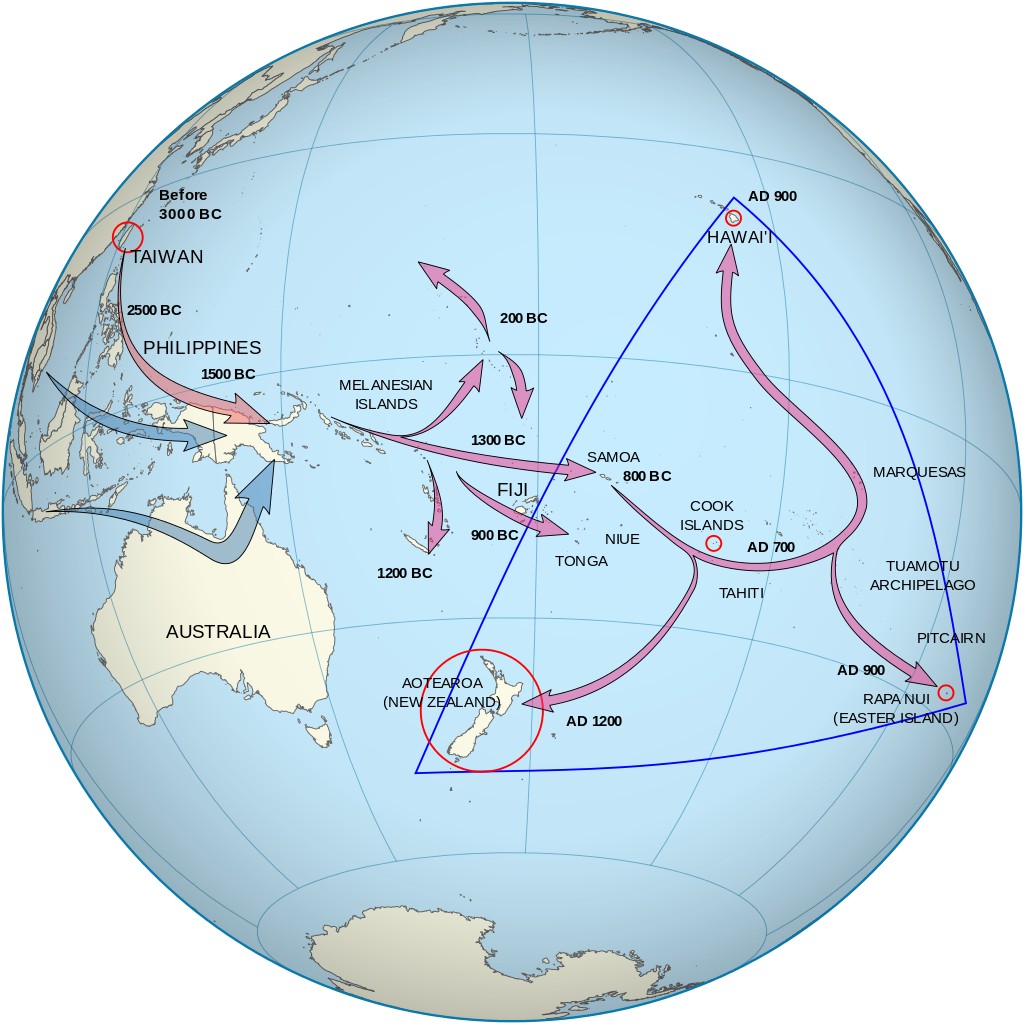 The peopling of the Pacific was one of the last major migration events undertaken by modern humans. Competing hypotheses exist regarding the origins of the first islanders, the scale of their migration and the extent to which they interacted with indigenous American groups. In collaboration with an international consortium led by the University of Oxford, we are participating in the Oceanian Genome Variation Project (OGVP) to generate one of the largest catalogues of human genetic variation from the Pacific in order to clarify human population dynamics throughout the region and characterize the genetic profile of Pacific Islanders across near and remote Oceania. This and other projects in the region are allowing us to assemble a transpacific dataset of present-day human populations and ancient genomes, aimed at tracing the origin of early settlers into Remote Polynesia and examining the possibility of pre-European contact with Native Americans. Support for these projects include The Rosenkranz Prize for Health Care Research in Developing Countries, The Stanford Data Science Initiative, The Stanford Center for Computational, Evolutionary and Human Genomics (CEHG), and The ICGEB grant.
The peopling of the Pacific was one of the last major migration events undertaken by modern humans. Competing hypotheses exist regarding the origins of the first islanders, the scale of their migration and the extent to which they interacted with indigenous American groups. In collaboration with an international consortium led by the University of Oxford, we are participating in the Oceanian Genome Variation Project (OGVP) to generate one of the largest catalogues of human genetic variation from the Pacific in order to clarify human population dynamics throughout the region and characterize the genetic profile of Pacific Islanders across near and remote Oceania. This and other projects in the region are allowing us to assemble a transpacific dataset of present-day human populations and ancient genomes, aimed at tracing the origin of early settlers into Remote Polynesia and examining the possibility of pre-European contact with Native Americans. Support for these projects include The Rosenkranz Prize for Health Care Research in Developing Countries, The Stanford Data Science Initiative, The Stanford Center for Computational, Evolutionary and Human Genomics (CEHG), and The ICGEB grant.
Population Genomics of Non-Model Organisms
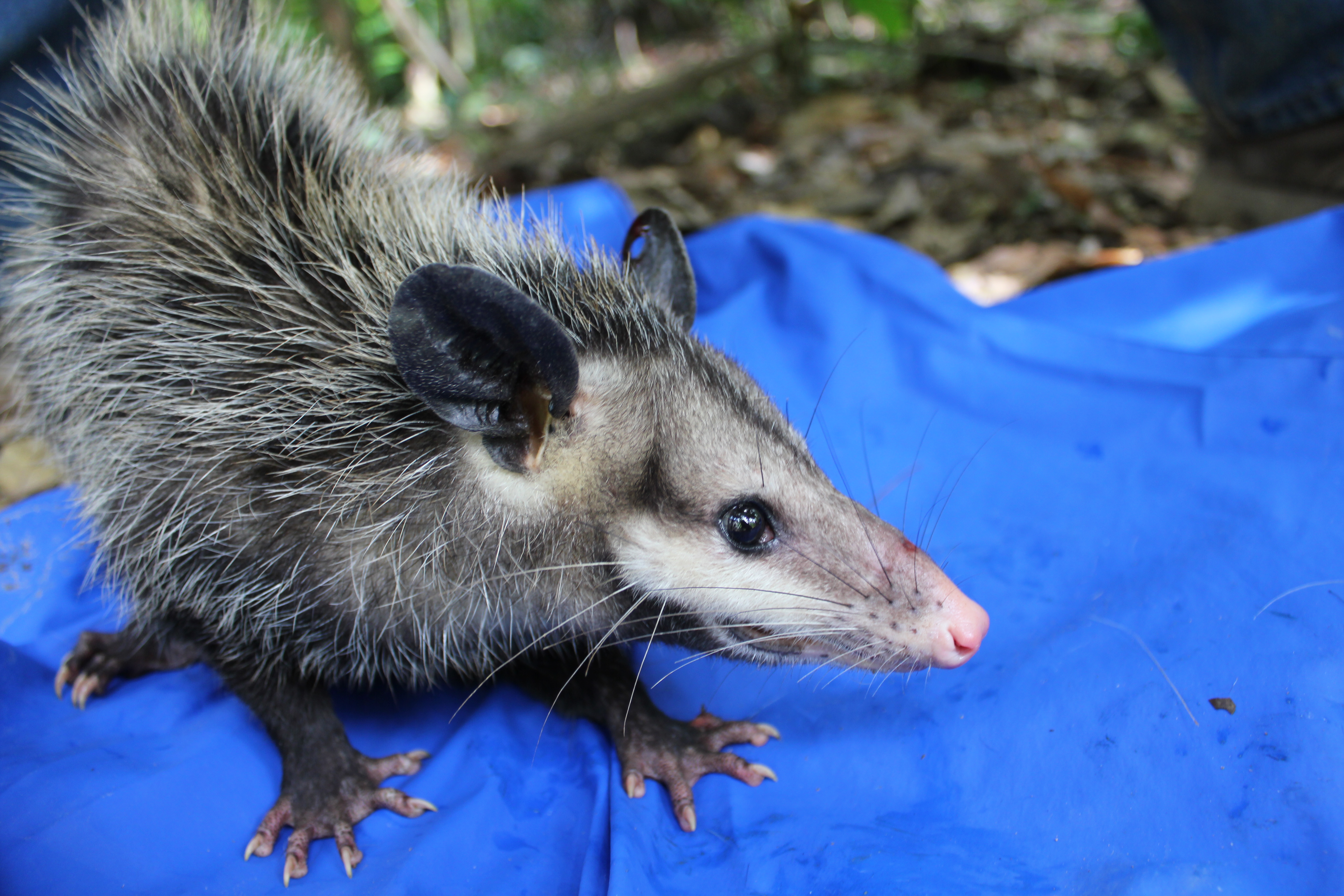
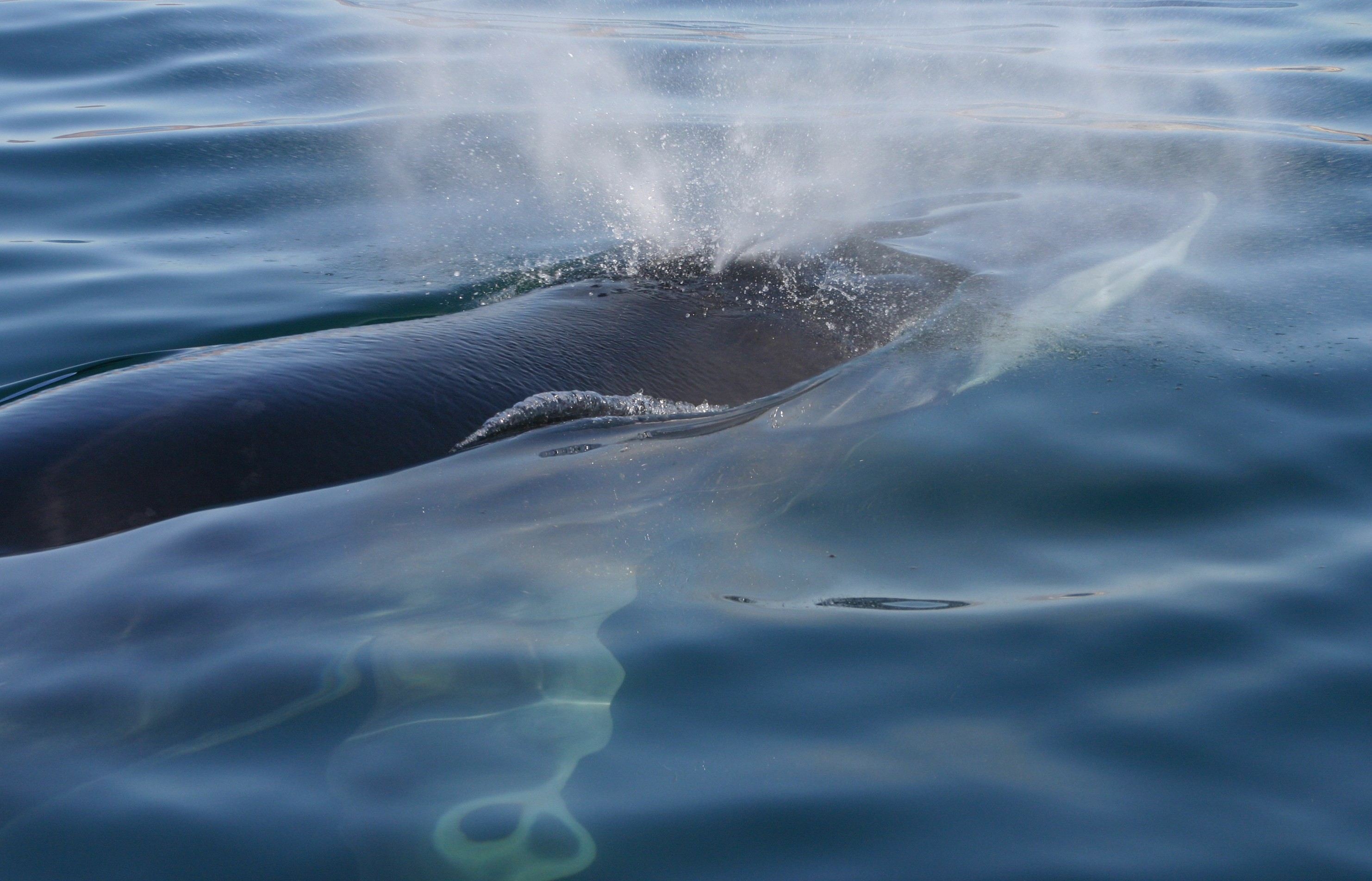 In close collaboration with the UC Conservation Genomics Consortium, the Southwest Fisheries Science Center and the University of California Los Angeles (UCLA) we are using whole genome sequencing and capture array technology to examine admixture, population structure, demographic history and adaptive variation in understudied Mexican mammal species, such as the fin whale, the sea otter, and the opossum. This project is funded by CONACYT, Mexico and the UC Conservation Genomics Consortium.
In close collaboration with the UC Conservation Genomics Consortium, the Southwest Fisheries Science Center and the University of California Los Angeles (UCLA) we are using whole genome sequencing and capture array technology to examine admixture, population structure, demographic history and adaptive variation in understudied Mexican mammal species, such as the fin whale, the sea otter, and the opossum. This project is funded by CONACYT, Mexico and the UC Conservation Genomics Consortium.
Community Engagement and Fieldwork
A key component of our research is to build trustworthy and longstanding relationships between our research teams and participant communities across Latin America and the Pacific. We work to promote active participation by community members in the research projects of their own populations through informative talks, training, and the important component of returning results. We believe that better-informed communities can be well positioned to benefit from the advances derived from genomic research, particularly in historically marginalized and underserved human populations.
Additional Research Initiatives
ChileGenómico: In collaboration with the University of Chile we are participating in the National Diversity Project of the Chilean Population.
AfroMex Genomics Project: In collaboration with María Ávila from the International Laboratory of Human Genome Research (LIIGH) and Marcus Feldman from Stanford University, we are working to better characterize the African genetic component in Mexico.
Cañada de la Virgen Ancient DNA project: We are collaborating with Dr. Karla Sandoval Mendoza (LANGEBIO) and INAH researchers to obtain ancient DNA from one of the most recently excavated archaeological sites in Guanajuato.
Funding
Funding for our projects and lab members comes from the following sources: